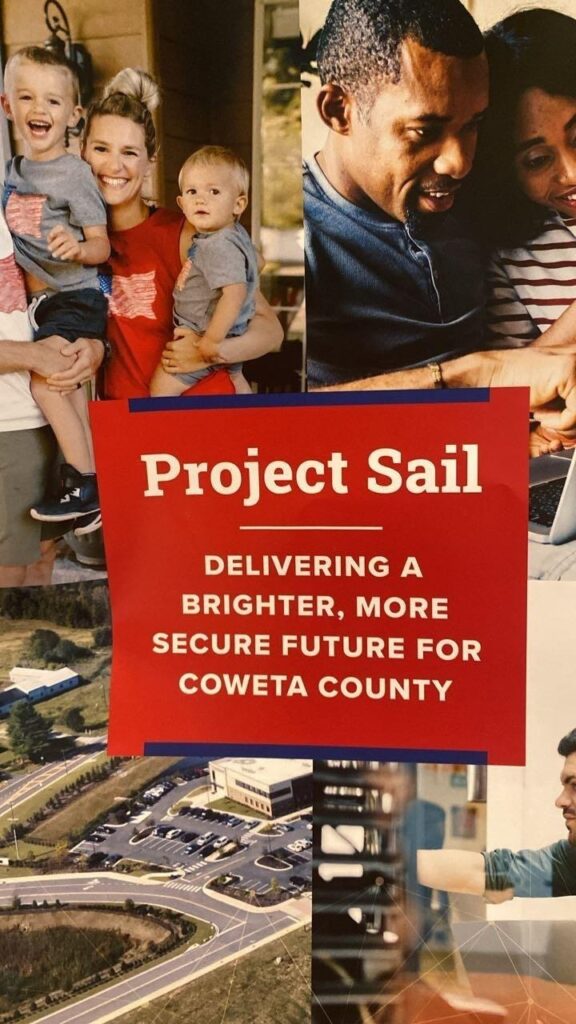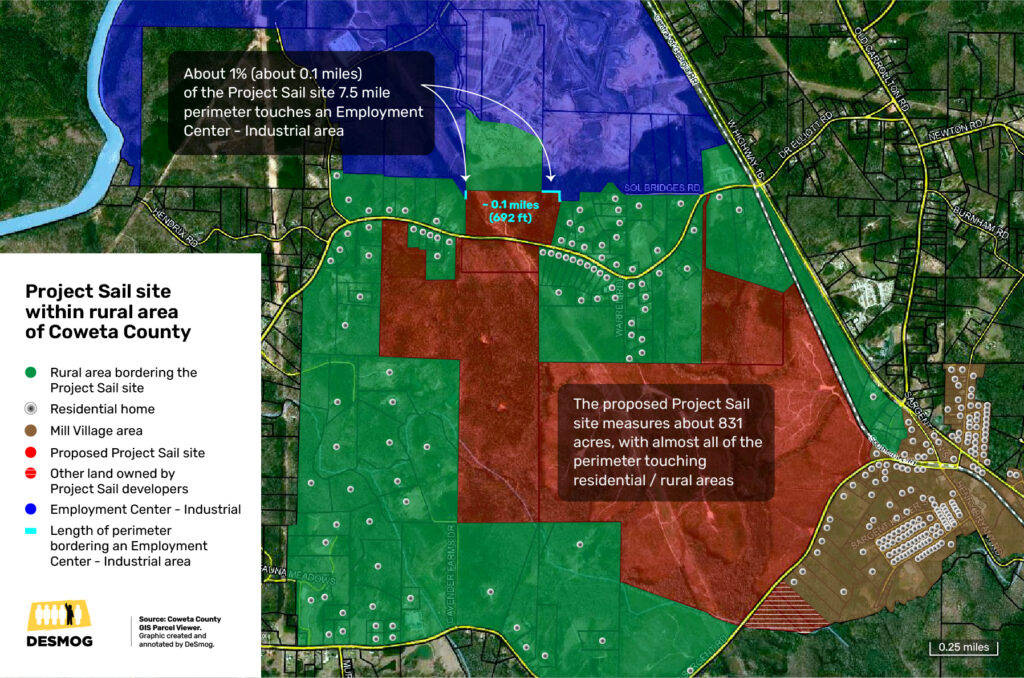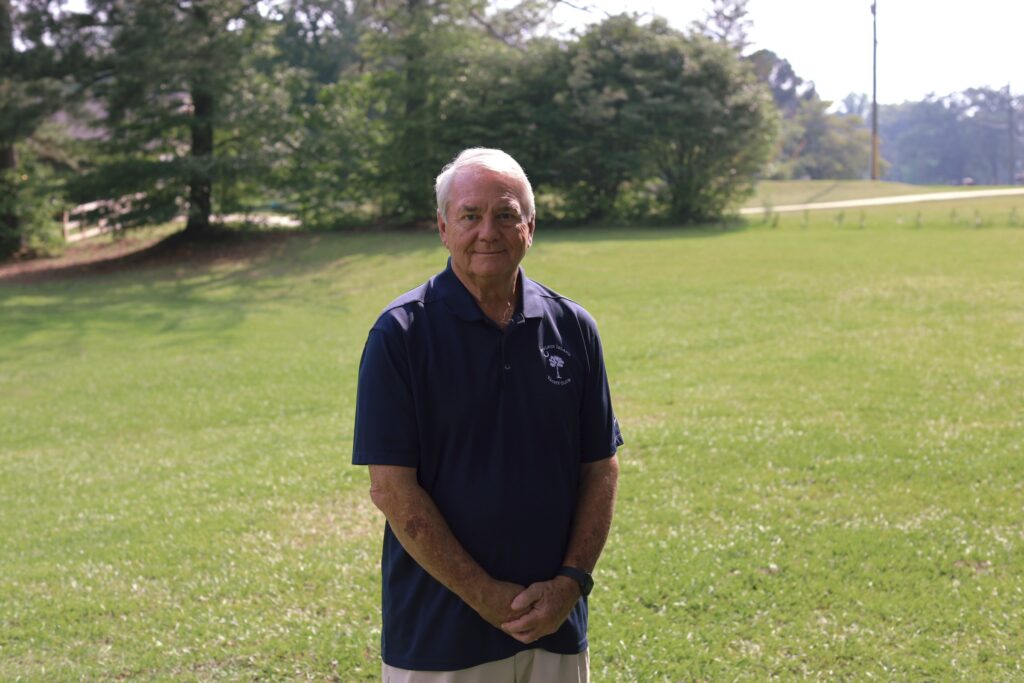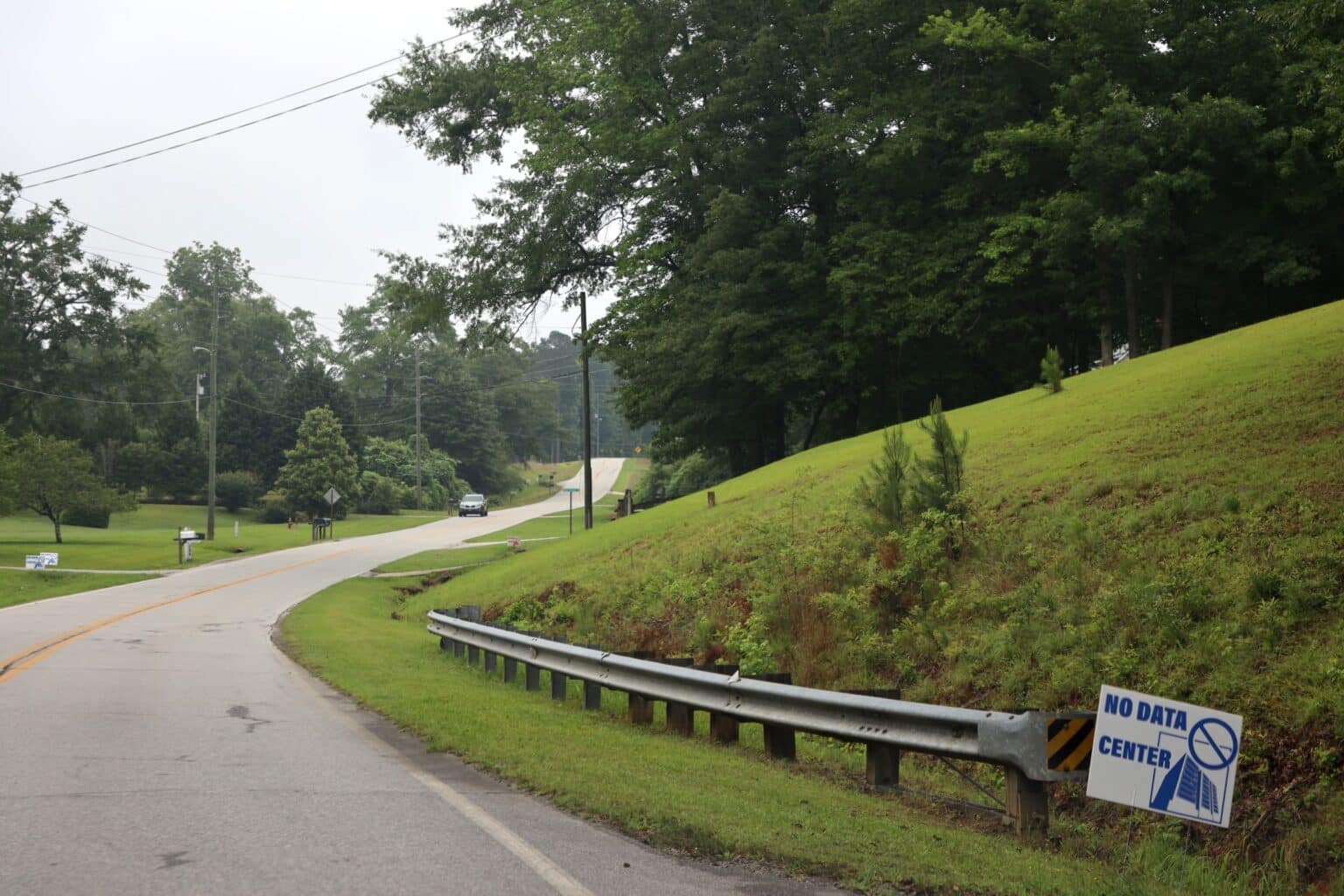On a Thursday morning in late August, Georgia country music radio station The Bear 92.5 FM awarded a 10-minute spot to a special guest.
Phoning in to the Half & Half Morning Show was J.C. Witt, an executive of San Francisco-based Prologis (NYSE:PLD), the world’s largest industrial real estate company.
Prologis wants to build “Project Sail” — one of the biggest planned data center complexes worldwide — on an 831-acre site in a rural community in Georgia’s Coweta County. But locals aren’t sure that planting a project the size of more than 600 football fields on their doorsteps is such a good idea.
“There’s been a lot of porch conversations,” Witt told 92.5 FM host Cal Cross. “I’ve sweat through a lot of shirts through the Georgia summer in conversations around the campus.”
After their exchange, Cross said some of his concerns about the project had softened. “Now that I’m hearing the other side, folks, we’re hearing the other side, I’m feeling a lot better about it,” he said.
Across the United States, the developers behind dozens of new “hyperscale” data center projects are discovering that the biggest obstacle to building these huge facilities is the grassroots opposition showing up at tense public hearings in county chambers and city halls.
The Trump administration has encouraged the data center boom by issuing an executive order to promote artificial intelligence (AI) development nationwide. Democratic lawmakers and officials from Pennsylvania to Arizona have backed hyperscale data centers as well.
But since the year began, resistance in places such as Pittsylvania County, Virginia, Oldham County, Kentucky, and St. Charles, Missouri has killed plans to build the projects near homes and farmland.
While climate campaigners are concerned about the carbon pollution from the gas- and coal-fired power plants that would power these massive data centers, it’s often residents worried about the threat to the character of their local area who put up the fiercest fights.
That’s why the backers of Project Sail — in addition to lobbying Coweta County officials — have launched a public charm offensive aimed directly at residents. Over the summer, Prologis representatives went on a data center tour alongside Coweta County commissioners and attended a neighborhood barbecue hosted at a local resident’s home.
“We thought it was important to get to know them, answer some of their questions, and hear their views,” a Prologis spokesperson said in an emailed response to questions.
Prologis says that public feedback prompted the company to change the Project Sail site plan by increasing setbacks for residents and conserving 60 percent of the development for green space.
In the past two weeks, a Project Sail publicity brochure has begun appearing in mailboxes. Featuring images of families in clothing emblazoned with the American flag, the mailing appeared to be an attempt to appeal to the conservative-leaning county’s sense of patriotism.
The project’s staunchest opponents aren’t buying it.
“Don’t patronize us,” said Laura Beth, chairwoman of Citizens for Rural Coweta, a newly formed group opposing the project. “I have not seen [Witt] in the area nor heard from anyone telling us he has been knocking on their door.”

Head Start
Data center developers typically seek the support of local officials during months of closed-door meetings before their plans are made public. Confidentiality is standard practice for pending real estate deals, but many residents say the way the process works ends up giving the companies a head start in winning approvals before local people have time to organize.
This pattern has played out in Coweta County. According to the Prologis spokesperson, the company became involved in Project Sail in September 2024, and public records show that Prologis began meeting with Coweta County officials that November. It wasn’t until May 2025 that Prologis publicly announced its participation.
During this time, a Georgia-based land developer named Atlas Development LLC bought the expansive wooded site in Sargent, then filed an application in December to convert the land from “rural conservation” to “light industrial” in the county code, a crucial requirement for Project Sail to go ahead.
The rezoning application was the first locals heard about the project, and triggered an instant backlash. In early January, less than a week after the Project Sail proposal was made public, residents gathered in the Sargent Baptist Church and formed Citizens for Rural Coweta. The group’s Facebook page now has more than 2,500 members.
Citizens for Rural Coweta says that it is not against data centers, but argues that they should be placed in preexisting industrial areas to mitigate threats ranging from industrial sprawl and construction traffic, to pressure on local water supplies and air pollution from hundreds of on-site generators.
The group also has questioned a Prologis projection that the facility will generate $100 million a year in taxes to fund local services.

AI Boom
Witt, the Prologis executive, knows firsthand how hard it can be to sell these massive industrial facilities to local officials and residents.
The company’s plans to build a data center in Kosciusko County, Indiana collapsed in April, when county commissioners unanimously voted to deny a Prologis request to rezone 554 acres of farmland.
A month later, Prologis announced its intention to own and operate Project Sail in Sargent — which nestles in a wooded area near the Chattahoochee River, about six miles northwest of Newnan, Coweta County’s seat.
Once a quiet town that gave rise to country music superstar Alan Jackson — singer of number one hits such as “Gone Country,” “Chattahoochee,” and “Livin’ on Love” — Newnan has seen its population triple to about 45,000 since the 1990s as Atlanta’s urban sprawl spread southwest.
As surging demand for AI has turned Georgia — with its generous state tax exemptions for data centers — into the nation’s fastest-growing data center market, Newnan is increasingly a stopping point for global corporations eager to build.
On April 15, Coweta County commissioners gave the go-ahead to the county’s first large-scale data center project by rezoning over 300 acres in the town of Palmetto from rural conservation to light industrial, over the objections of Palmetto’s mayor and many local residents.
In early May, a growing outcry over the potential impacts of data centers prompted Coweta County commissioners to announce a 180-day moratorium on new projects, along with plans to draft a local law, or ordinance, to regulate data center rezoning and construction.
Writing the Rules
Lobbyists lost no time in seeking to sway the new rules to suit Project Sail.
Among the individuals who wrote to Coweta County commissioners on behalf of Project Sail was Arthur “Skin” Edge IV, a county resident and prominent professional lobbyist.
On July 7, Edge wrote to Coweta County commissioners on behalf of “the Project Sail team” with detailed recommendations for the wording of the data center ordinance, according to public records obtained by DeSmog.
“I feel like this project would be a huge benefit to Coweta County,” Edge said in an interview, “and that is the reason I decided to get involved with it.” Edge said that Atlas Development hired him as an attorney for Project Sail.
As lobbyists have prevailed upon County Commissioners to drop some of the constraints on data center development proposed in early drafts of the ordinance, local opposition has showed little sign of abating.
Last month, an overflow crowd of residents packed into the 150-person capacity Coweta County Commission Chambers in Newnan to call for including tougher measures in the ordinance.

During this hearing, Coweta’s five county commissioners voted unanimously to continue discussion of the draft at a special meeting at 6 p.m. on Thursday, September 11. The meeting has been moved to the County Fairgrounds to accommodate more people.
In the meantime, Witt has made his appearance on 92.5 FM, and Project Sail’s backers have been mailing brochures, printed with the slogan “Coweta’s Brighter Future Starts Now,” to county residents.
In a letter to the Newnan Times-Herald, local resident Steve Swope called the tone of the brochures “condescending.”
“What kind of dark and dismal future would we poor Southern bumpkins have had to face if not rescued by this ‘left coast’ company from San Francisco?”
In his spot on 92.5 FM, Witt said that feedback from residents has helped Prologis modify the Project Sail site plan, and suggested that overall, the local response to the company’s efforts has been positive. “I’m not feeling like Mr. Lonely anymore,” he said.
The reporting for this story was supported by The Fund for Investigative Journalism.
Subscribe to our newsletter
Stay up to date with DeSmog news and alerts






